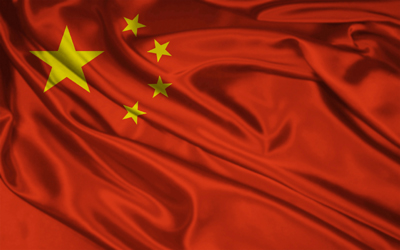 BEIJING: China's factory activity expanded for the first time in four months in August as domestic demand rebounded, a private survey showed, a further sign that policymakers may have averted a sharp slowdown in the world's second-largest economy.
BEIJING: China's factory activity expanded for the first time in four months in August as domestic demand rebounded, a private survey showed, a further sign that policymakers may have averted a sharp slowdown in the world's second-largest economy.
The final HSBC/Markit Purchasing Managers' Index (PMI) climbed to 50.1 in August, up sharply from July's 47.7 and in line with last week's flash reading.
The survey came a day after a more bullish official manufacturing PMI, which showed factory activity expanded at the fastest pace in more than a year in August with a jump in new orders ( ).
The official PMI, which came in at 51.0 versus expectations for 50.6, is more weighted towards bigger and state-owned firms, which have easier access to credit and the scale to cope better with downturns.
But any expectations for a strong rebound may be misplaced. As a PMI reading above 50 indicates growth while one below 50 demarcates contraction, the latest Markit/HSBC data suggests August's expansion was only modest.
Indeed, the survey showed new export orders dipping from July to stay well below the 50-point threshold. New orders, which include domestic orders, showed marginal growth by rising to 50.8, albeit a four-month high.
"We expect some upside surprises to China's growth in the coming months," said Qu Hongbin, an HSBC economist, noting that factory activity had picked up on firms rebuilding their stocks and on recent steps taken by authorities to boost activity.
Modest growth in China's factories should still comfort financial markets, however, offering hope that a run of encouraging data in July was not a fluke.
As recently as a month ago, investors had worried that China's economy was slipping into a deeper-than-expected downturn, especially after it was hit by an unprecedented cash crunch in June.
HSBC said lethargic export sales remained an Achilles' heel for China, with factories citing weak US and European demand behind last month's fall in overseas orders.
Yet a weak economic revival may have started to stir price pressures. Average input costs rose in August for the first time since February on the back of higher raw material prices, HSBC said.
To revive China's economy, which has slowed in 12 of the last 14 quarters, the government has cut taxes for small firms and accelerated investment in infrastructure and railways.
But analysts have warned investors against thinking that the economy would make a roaring comeback, saying that 2013 growth is likely to cool to around 7.5 percent, the worst in 23 years.























Comments
Comments are closed.